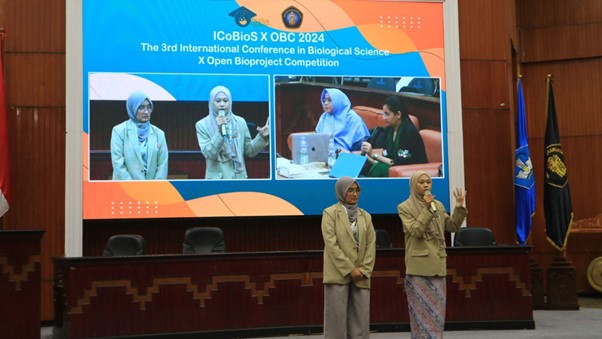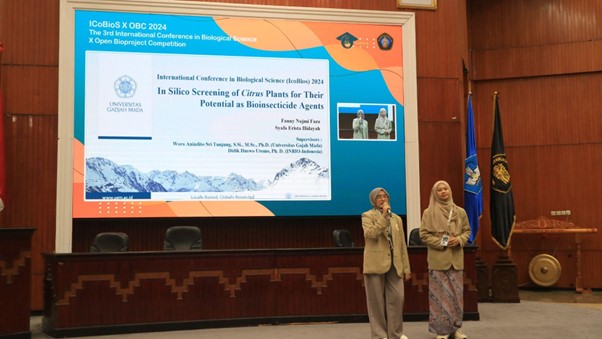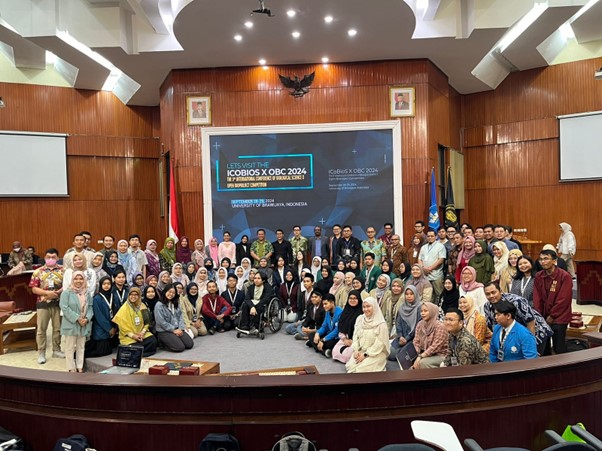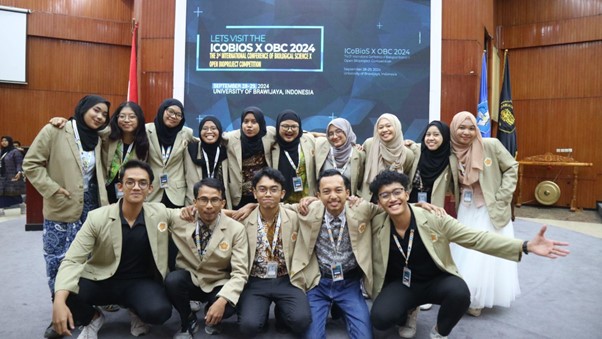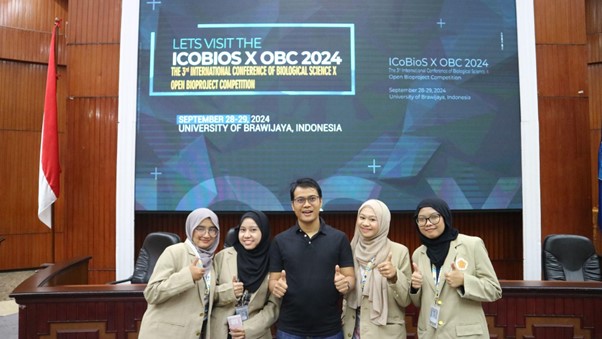The MBKM Research Team from the Faculty of Biology, Universitas Gadjah Mada (UGM), consisting of Fanny Najmi Faza and Syafa Erista Hidayah, actively participated in the ICOBIOS X OBC 2024 international conference, organized by the Indonesian Biology Generation (INBIO-Indonesia) at Brawijaya University, Malang, on September 28-29, 2024.
ICOBIOS is an international forum that brings together researchers, academics, and practitioners from various countries to exchange ideas and the latest discoveries in biological sciences. This year, ICOBIOS X OBC 2024 adopted the theme “Recent Updates in Bioinformatics, Synthetic Biology, and Nanobio Science for a Better Future,” aiming to explore innovations in bioinformatics, synthetic biology, and nanobio science. Through seminars, panel discussions, workshops, and interactive scientific competitions, participants are able to deepen their knowledge and expand their professional networks, fostering future collaborations.
At this event, the MBKM Team presented their research under the guidance of Dr. Woro Anindito Sri Tunjung from UGM’s Faculty of Biology and Dr. Didik Huswo Utomo from INBIO-Indonesia. Their research focused on screening 10 species of Citrus plants in Indonesia, including Kaffir lime (Citrus hystrix), Key lime (Citrus aurantifolia), Mandarin orange (Citrus reticulata), Sweet orange (Citrus sinensis), Pomelo (Citrus maxima), and Lemon (Citrus limon), known to contain volatile compounds capable of disrupting the olfactory system of mosquitoes and even causing their death.
This research aims to identify the most effective citrus species in controlling Aedes aegypti mosquitoes, the vector of Dengue Fever, using an in silico approach. The results indicate that among the 10 species, four citrus plants—C. hystrix, C. aurantifolia, C. reticulata, and C. limon—show the greatest potential as bioinsecticide agents due to their high levels of the volatile compound Terpinen-4-ol, which strongly interacts with the mosquito odor receptor protein (Ace-1).
These findings are expected to support the development of environmentally friendly bioinsecticide products that can be applied by the public, reducing the use of conventional chemical insecticides that contribute to environmental pollution. Additionally, this research contributes to several targets of the Sustainable Development Goals (SDGs), including SDG 3: Good Health and Well-Being, SDG 12: Responsible Consumption and Production, and SDG 17: Partnerships for the Goals. This research strengthens collaboration between academics, researchers, and practitioners to develop sustainable, nature-based solutions for public health challenges.

